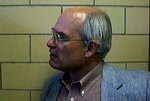James Williams recently wrote about training science graduates to become science teachers in the New Scientist (free registration required). He has surveyed 74 of his graduates and found that many fail to understand basic scientific concepts despite being good students and well versed in their respective disciplines.
For example, only 11% of his students knew what constituted a scientific fact. Many (76%) thought that scientific facts were the same as the words "truth" and "proven." On the other hand, most (61%) understood the definition of a hypothesis and its provisional nature.
Williams interprets his results as being due to a lack of history or philosophy of science courses. Most of his students were good scientists, he maintained, but were not aware of how science fit into the big picture. Williams also worries that the lack of historical and philosophical awareness may affect how scientists counsel policymakers about issues such as global warming and cloning. If the scientists cannot understand these issues, they will not be able to advise others.
In our first chapter, we explicitly attempt to situate psychology, historically and topically, within the broader framework of science. We also briefly cover the philosophy of science and feature sections on Karl Popper, Thomas Kuhn, and Paul Feyerabend. We strongly agree with Williams, science is more than learning methods and techniques. Scientists must be aware of how their discipline evolved and how their data fit into larger and important contexts. In other words, scientists should adopt something more than an utilitarian view of science.
Subscribe to:
Post Comments (Atom)



No comments:
Post a Comment